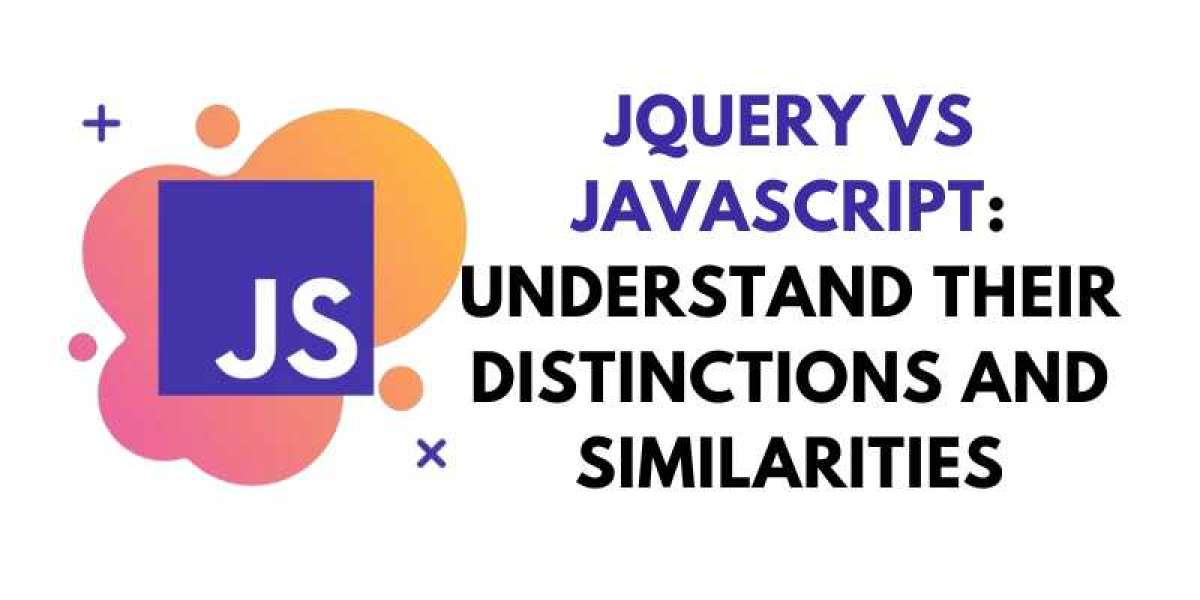So many tools are available in the programming world that it's easy to get them mixed up. It's not helping matters when many of these tools appear to overlap and perform the same functions. Choosing the right resource is the most challenging aspect of web design or code writing. Join FITA Academy's Javascript Training Institute in Chennai to learn more about Placement. It offers advanced certification training and 100% job placement assistance.
But don't worry, and help is on the way! This article compares and contrasts JavaScript and jQuery, two widely used programming languages. We'll explain each tool individually and then compare jQuery and JavaScript.
Let's start with JavaScript before moving on to jQuery vs JavaScript.
What is JavaScript?
JavaScript, abbreviated JS, is a prototype-based programming language that improves website interactivity. JavaScript is one of three core technologies used to create webpages (the other two are CSS and HTML). It enhances user interface (UI) functions by supporting animations, games, eye-catching flash, pop-ups, and client-side validation. If you like your web pages to be busy, JavaScript is what you want, with lots of animation and the ability to perform mouse overs and mouse clicks.
All web browsers support JavaScript via built-in engines recognising JavaScript code and functions. Though it was originally designed for client-side browsers, JavaScript is now used to provide features and functionality to a wide range of host software found on server-side databases and web servers.
This dynamic language, by the way, has nothing to do with the Java programming language.
Advantages of JavaScript
While the premise of this article is jQuery vs JavaScript, it is important to note that this comparison is not entirely fair. jQuery, after all, is a library, whereas JavaScript is a language. To fully appreciate JavaScript's advantages, it is best to compare it to other programming languages.
- It’s easier to learn
- It’s lighter and faster
- It’s easier to spot and correct errors
- It’s used on more platforms and browsers
- It doesn’t require a compiler because the web browser uses HTML to compile JavaScript
What is jQuery?
We need to look as far as its official website for a good definition of jQuery. According to jQuery.com, it is "...a fast, small, and feature-rich JavaScript library." It simplifies HTML document traversal and manipulation, event handling, animation, and Ajax with an easy-to-use API that works across a wide range of browsers."
As a result, unlike JavaScript, jQuery is a cross-platform library derived from JavaScript rather than a programming language.
Master the JavaScript fundamentals including, jQuery, Ajax, and more with the Javascript Training Courses. Check out the course preview!
Advantages of jQuery
Web developers can benefit greatly from jQuery. Its advantages include:
- Allows developers/programmers to write JavaScript more quickly and easily.
- Works with multiple browsers, so the code is compatible regardless of the browser's features.
- Decrease the number of lines of code required to perform the most common JavaScript actions.
- It assists you in avoiding common browser errors.
- Complex operations such as animation, event handling, and Ajax interactions are simplified.
- It's a tried-and-true tool with nearly 15 years of widespread use.
JavaScript vs jQuery : What’s the Difference?
Function
A programming language
An API is a cross-platform JavaScript library designed to improve web browser features.
Coding/Scripting
Programmers must write their scripts, which takes time.
The majority of the scripting is already available in libraries.
Compatibility
To handle multi-browser capabilities, programmers must write code or devise workarounds.
It's a multi-browser library; no additional steps are required.
Speed/Performance
Because the browser directly accesses the language, pure JavaScript accesses Document Object Models (DOM) faster.
Although fast, it still takes some time to convert to JavaScript and run in a browser.
Maintainability and Reusability
Because it is verbose, it may be more difficult to maintain and reuse.
Fewer lines of code make it easier to maintain and reuse functions in various places throughout the code.
Conclusion: jQuery vs JavaScript
To summarise, if you're looking for the best programming language for your web development project, JavaScript is the way to go. However, if you want to create a more dynamic website but don't want to spend countless hours writing redundant code, you're better off using jQuery. So, once again, the answers to the jQuery vs. JavaScript debate are nuanced. Enrol in FITA Academy's Javascript Training in Chennai to jumpstart your career in this emerging technology.








